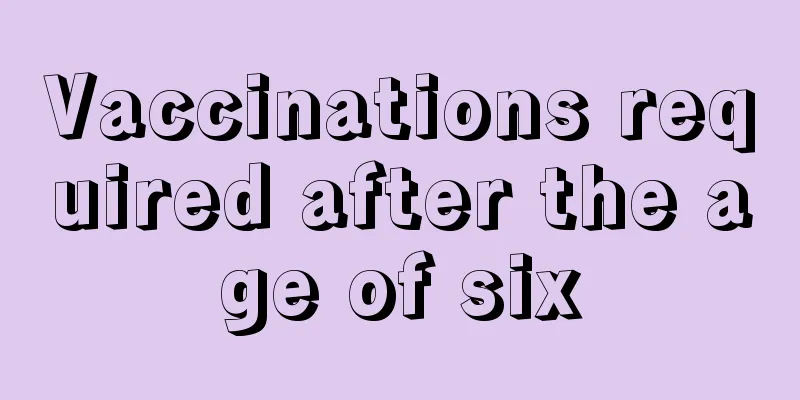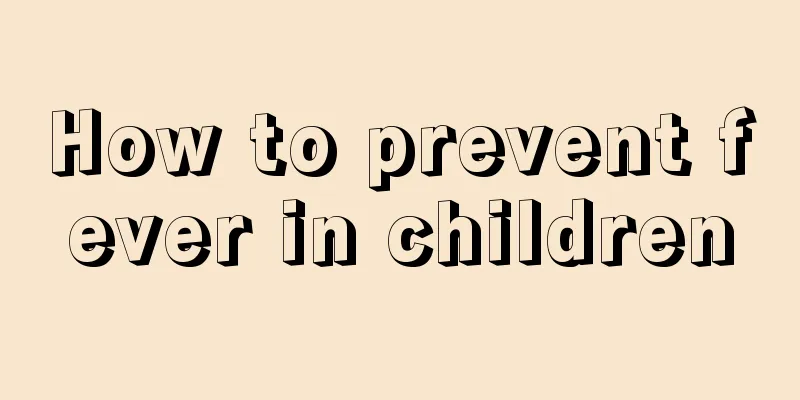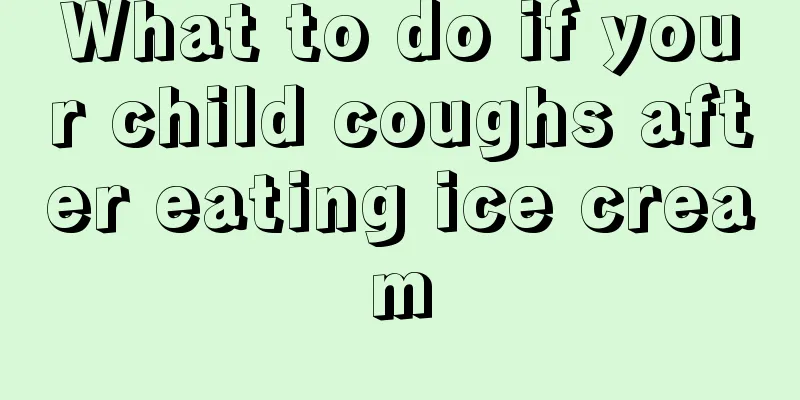Vaccinations required after the age of six

|
People need to get a lot of vaccines in their lifetime, especially for children. Vaccination is an important way to prevent many diseases, so as to ensure the good development of children. After the child reaches the age of six, some planned immunization vaccines can basically be completed. After the age of six, some vaccines can be received at one's own expense. Let's take a look at this aspect. Vaccinations required after the age of six According to my country's normal vaccination procedures, children under the age of six complete planned immunizations, and there are no planned immunizations after the age of six. After the age of six, children can receive vaccines at their own expense if necessary, such as chickenpox vaccine and hepatitis B booster vaccine. After the age of six, they can also receive vaccines at school. The school will issue a notice and parents can take their children to receive the vaccines. What to do if you missed a vaccination? Children under 14 years old who have not completed the recommended number of doses of vaccination under the national immunization program should receive booster vaccination as soon as possible, and follow the following principles: 1. For children who have not received a certain national immunization program vaccine, booster vaccination should be carried out according to the child's current age, the vaccine type, vaccination interval and dose specified in the specific booster vaccination principles, in accordance with the immunization schedule of the vaccine. 2. Children who have not completed the number of doses required by the national immunization program only need to make up for the unfinished doses and do not need to restart the full vaccination process. 3. Priority should be given to ensuring that children complete the full course of national immunization program vaccines in a timely manner. When it is impossible to complete the full course of vaccination with vaccines from the same manufacturer, the same type of vaccines from different manufacturers can be used to complete subsequent vaccinations (including booster shots). Unless otherwise specified in the vaccine instructions. 4. Specific recommendations for booster shots for each vaccine and the booster shot principles for new vaccines added after the National Expanded Immunization Program (hereinafter referred to as expanded immunity) in 2007. Vaccination is very important for babies, both for their health and for their future schooling. This requires us parents to not ignore the issue of baby’s vaccination. The vaccinations for babies before six weeks of age should be certified and vaccinated in accordance with national regulations. There are no clear requirements after six weeks, but for the health of the baby, it is recommended that parents learn more and take their children to get relevant vaccines. |
<<: Can I get vaccinated if I have a slight cough?
>>: Can the diphtheria-pertussis vaccine be delayed?
Recommend
What causes leg pain in children?
Every parent should pay attention to supplementin...
Why does my baby walk late and talk late?
Everyone knows that babies nowadays can generally...
What to do if your 1-year-old baby has repeated fever and diarrhea
As time goes by, the babies grow up gradually, an...
What's going on if my baby has white discharge from his vulva?
If it is an adult woman, some white secretions wi...
What causes a child’s tongue to have thick white coating? The reasons are many and complex
Some babies' tongue coating looks white and i...
What are the symptoms of children's intellectual disability?
There is no difference between children when they...
What should I do if my child’s face is scratched?
Children are very energetic and like to play and ...
At what age do girls start to develop
At what age do girls start to develop? Friends wh...
What should I do if my child is allergic to pollen? Are children allergic to pollen?
Many people will be allergic to pollen in spring,...
Symptoms of colic in one month old baby
If a one-month-old baby has colic, the child will...
Symptoms of baby choking on trachea when drinking milk
Because the esophagus of a child is not yet fully...
Is it better for children to sleep on a hard bed or a soft bed?
Childhood is an important period of growth and de...
The main reason for baby's bone cracking
I believe every mother cares more about the baby&...
What is missing when a child bites others?
Some people with children may find that their bab...
Can children drink milk when they have a fever?
Milk is a particularly popular food. Although the...









